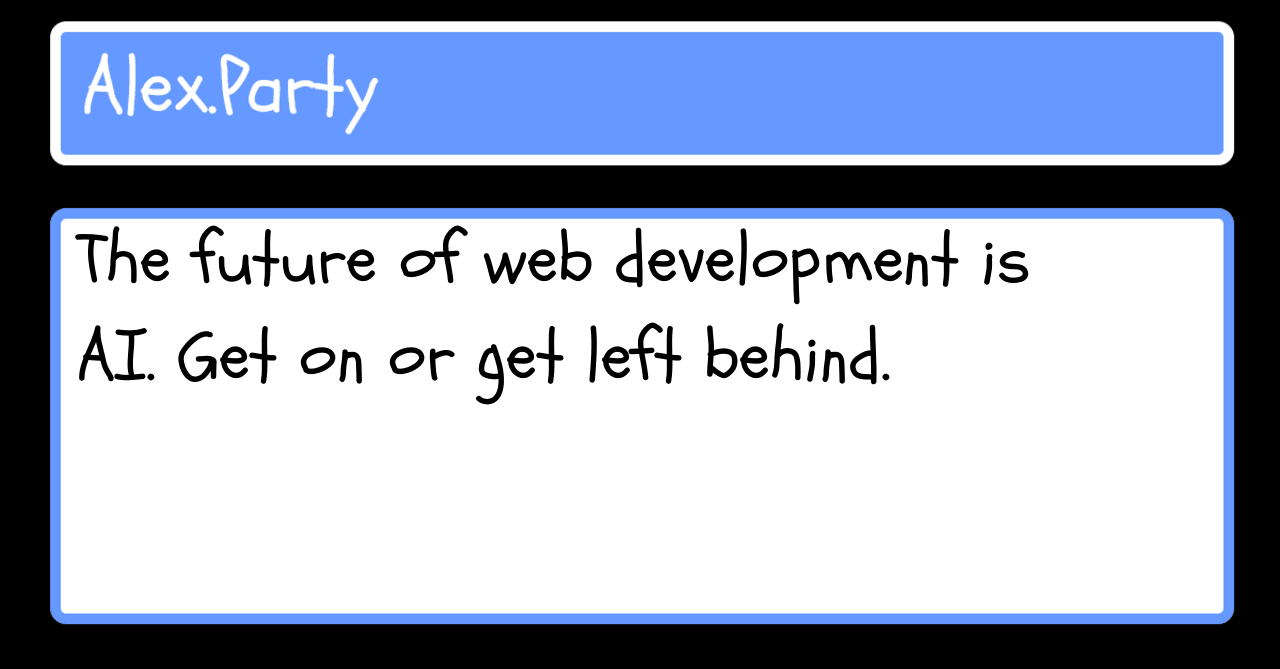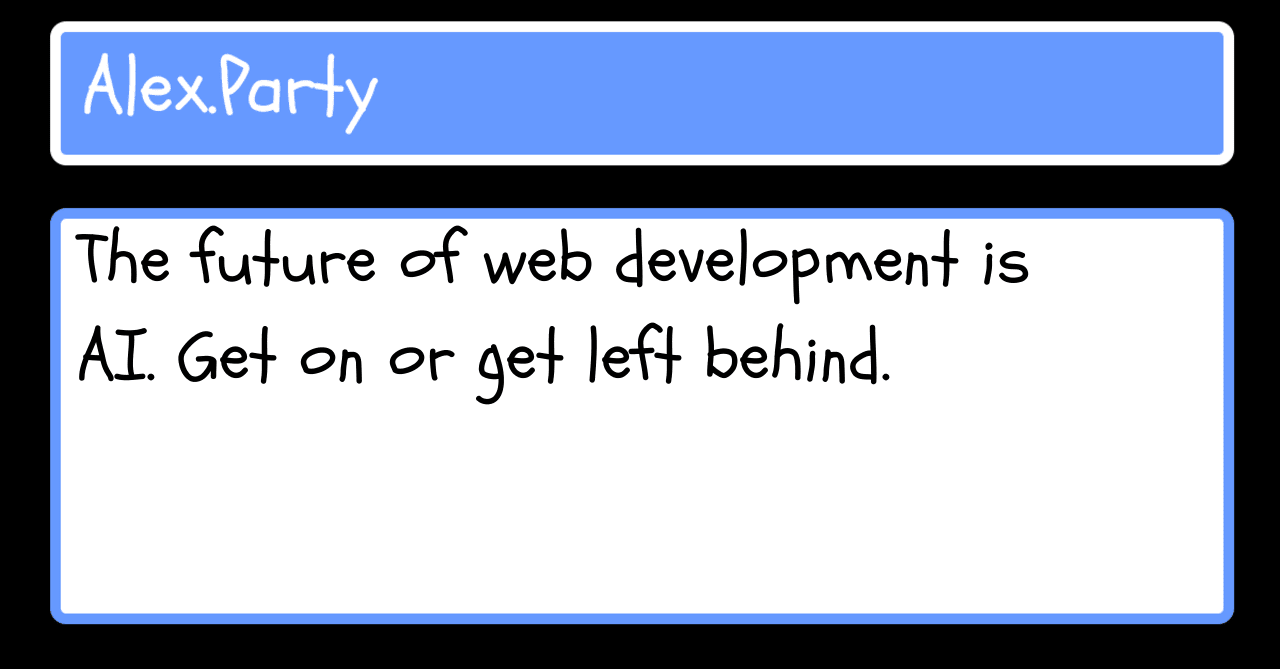The future of web development is AI. Get on or get left behind.
The future of web development is AI. Get on or get left behind.

alex.party
The future of web development is AI. Get on or get left behind.

The future of web development is AI. Get on or get left behind.

The future of web development is AI. Get on or get left behind.
